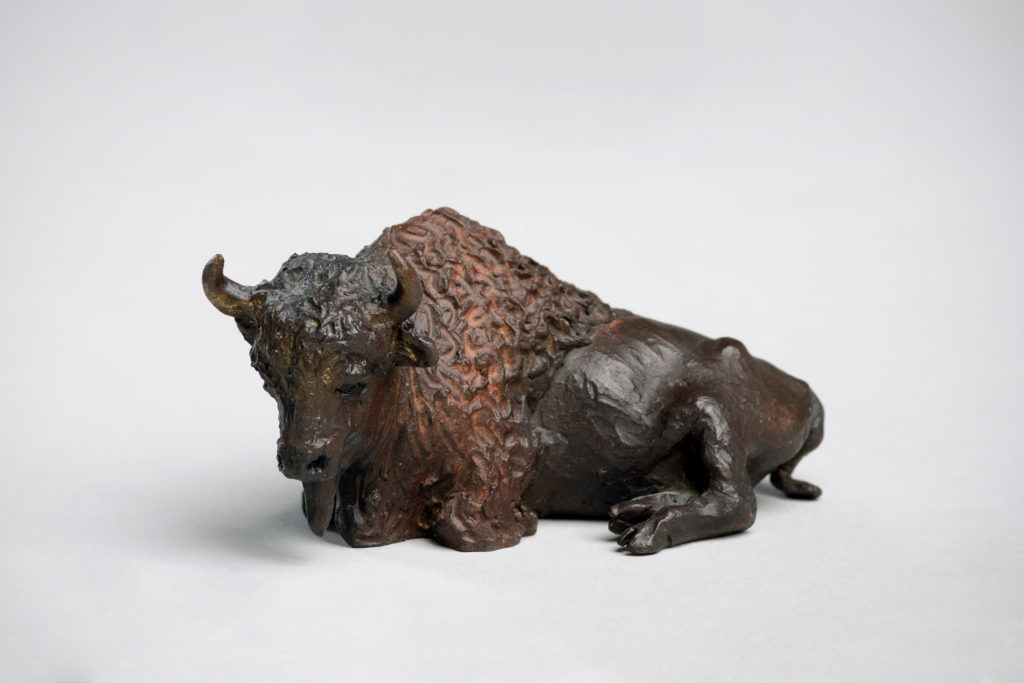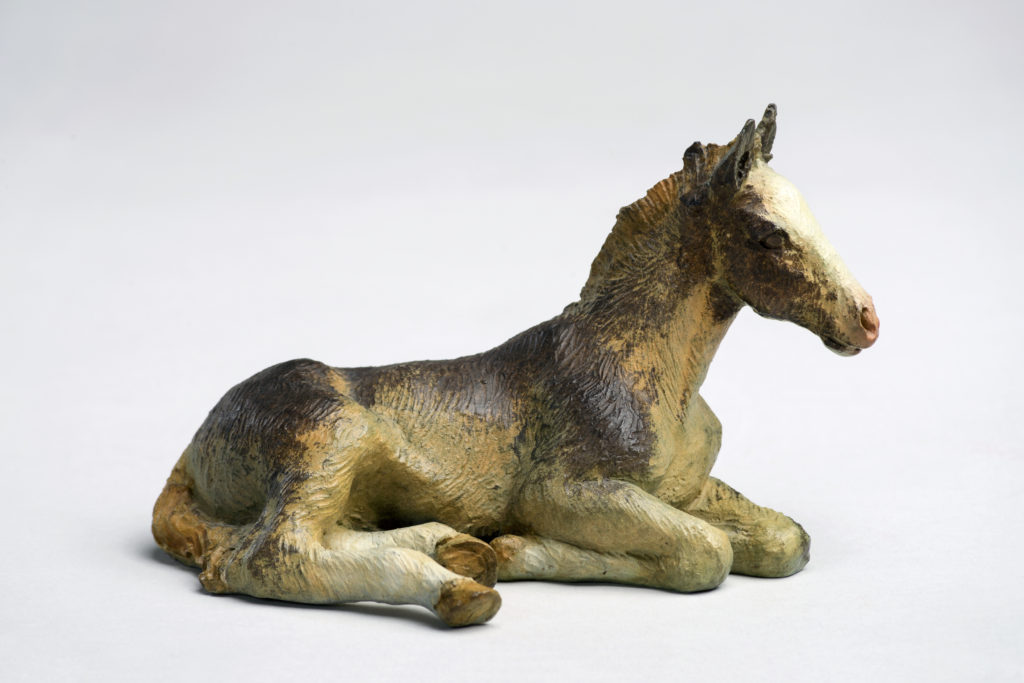(1942–2019)
Currently not on display

© Joseph Fafard. Reproduced with the permission of the artist. Photograph by the University of Regina.

© Joseph Fafard. Reproduced with the permission of the artist. Photograph by the University of Regina.
(top) Saskatoon (AP III), 2007
Bronze
1 3/4″ x 2″ x 4″
University of Regina President’s Art Collection, Shumiatcher Donation. Gift of Dr. Morris C. Shumiatcher, O.C., S.O.M., Q.C. and Dr. Jacqui Clay Shumiatcher, S.O.M., C.M., 2017; pc.2017.08
(bottom) Espérance (8/20), 2004
Bronze
3 1/2″ x 3 3/4″ x 5 1/2″
University of Regina President’s Art Collection, Shumiatcher Donation. Gift of Dr. Morris C. Shumiatcher, O.C., S.O.M., Q.C. and Dr. Jacqui Clay Shumiatcher, S.O.M., C.M., 2017; pc.2017.68
Joseph (Joe) Fafard was born in 1942 in Sainte-Marthe, a small French-Métis Saskatchewan town near the Manitoba border. His Saskatchewan upbringing is reflected in many of his artworks, most famously his sculptures of farm animals such as cows, which he feels represent the basis of a settled society that could sustain life for large groups of people [1]. He is known for pushing the limits of his medium, creating visual illusions, and exploring the capacity of ceramic, clay, and bronze.
Fafard received his Master’s in Fine Arts from Pennsylvania State University in 1968, then returned to Saskatchewan where he taught sculpture at the University of Regina (then called the University of Saskatchewan, Regina Campus) until 1974. In his five years of teaching, he found that the amount of energy required as an instructor was not compatible with pursuing his own practice [2]. He decided to devote himself full-time to making art, and in the 1980s he made his fateful decision to switch to using bronze as his medium, rather than the plaster and ceramics of his earlier years. He opened the Julienne Atelier foundry in 1985 in Pense, which he uses to create his limited-edition runs of sculptures.
Fafard’s talents have been recognized and sought after over several decades. In the 1970s, several of his sculptures were showcased in Paris for Trajectories, an initiative by the Canadia Council. This led to his 1976 collaboration with Vic Cicansky, Russ Yuristy, and his former student David Thauberger, on a work for the Canadian Summer Olympics in Montreal. He was made an Officer of the Order of Canada in 1981 in recognition of his public commitment to art in Canada. In 1999, Fafard installed a large metal sculpture on the University of Regina main campus, Le Jardin de l’esprit (Mind’s Garden), a monument to the lives cut short by war. Canada Post also featured his works on a series of postage stamps in 2012, and his life-sized bronze sculptures of animals can be found in cities across Canada, standing as proud icons of the Prairie.
[1] Heath, Terrence. (2007). Joe Fafard. Douglas & McIntyre: Vancouver.
[2] Miliokas, Nick. (2011). No Ordinary Joe. Degrees, 23 (2), 14-18.


